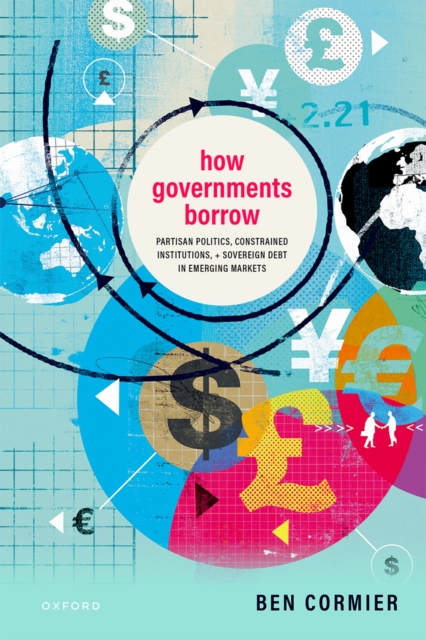
How Governments Borrow : Partisan Politics, Constrained Institutions, and Sovereign Debt in Emerging Markets PDF
by Ben Cormier
Description
How Governments Borrow reveals how annual borrowing decisions are informed by domestic politics.
The book traces the annual fiscal policymaking process in Emerging Markets (EM) to show how a government's partisan policy preferences are a primary determinant of annual external borrowing decisions and thus patterns of debt accumulation.
That sovereign debt composition has partisan political roots provides insights for scholars in political science, international relations, economics, sociology, and public administration that work on sovereign debt. Sovereign debt composition enhances or limits the capacity of an EM government to contribute to social and economic development.
Many EMs depend on foreign currency debt. How much external debt an EM government owes, the cost of that debt, the maturity of that debt, and the conditions attached to that debt all determine the political and economic opportunities and risks associated with a government's borrowings.
EMs borrow from different sources each year, leading them to build different sovereign debt structures over time.
Some prioritize cheap yet conditional official credit, which constrains policy autonomy but enhances debt sustainability.
Others prioritize comparatively expensive bond markets, which enhances policy autonomy but brings more expensive repayment obligations on to national balance sheets.
As countries accumulate debt, the borrowing choices they make come to have important effects on fiscal space, debt sustainability, and development.
Information
-
Download - Immediately Available
- Format:PDF
- Pages:272 pages
- Publisher:OUP Oxford
- Publication Date:14/02/2024
- Category:
- ISBN:9780198882749
Other Formats
- EPUB from £63.75
Information
-
Download - Immediately Available
- Format:PDF
- Pages:272 pages
- Publisher:OUP Oxford
- Publication Date:14/02/2024
- Category:
- ISBN:9780198882749






